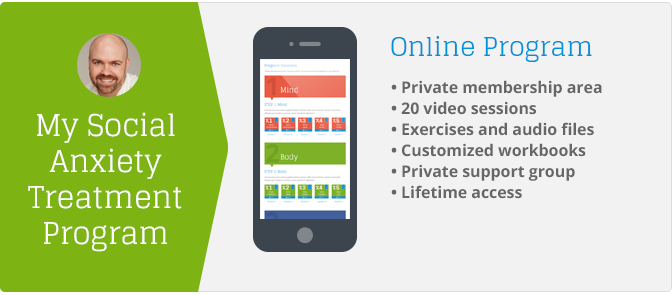How to Use Mindfulness Skills for Anxiety Disorders

A life-limiting disorder, social anxiety is characterized by “hyperfocus”. What this means is that if you have social anxiety, then you genuinely feel that “everybody” notices your nervousness and symptoms, and that you are being judged by them for it.
Do you ever feel this way?
If you do, then it’s also highly likely that you feel preoccupied by this perception and feel that you are the only person in the world getting anxious in social situations. Unfortunately this only serves to reinforce your sense of isolation.
While it is true that some people are born party animals and are rarely uncomfortable with others, the vast majority of us have our strengths and weaknesses and experience nervousness when confronted with a group of strangers, before having to speak in public, or generally when we are in any circumstances where we don’t quite know what to expect. Becoming aware of this will prove invaluable if you are suffering from social anxiety disorder.
Research has shown that mindfulness skills and interpersonal behaviour observation are among some of the more effective ways to reduce social anxiety and achieve more fulfilling human interactions.
With an emphasis on detached, objective observation, mindfulness skills for anxiety disorders will “re-train” you to pay less attention to your internal maelstrom and your perceived shortcomings; to understand your dynamics, thought processes and feelings better, and to think of them as a river, flowing away from you, and enabling you to build a more realistic self-image over time. By realising that the physical symptoms of your nervousness aren’t half as noticeable as you think they are, and that nobody thinks less of you in any case, engaging with others will become less daunting. The truth is that most people will do their utmost to make you comfortable if they indeed do notice anything.
Mindfulness skills can also be applied to turning your attention to others with equal benefits.
By taking notice of people’s behavior in social contexts, their natural hesitance, awkwardness, etc… you will see that you are not alone and that everybody feels anxious at one point or another and that they aren’t ostracized for it! You may even come across people who suffer from social anxiety like you, which will give you the opportunity to see for yourself that the manifestation of their/your anxiety isn’t as obvious as you may have thought. In addition, how people interact, navigate relationships, and recover from faux-pas, for example, with a joke, or by clarifying a misunderstanding, will demonstrate that it isn’t all beyond your control and that you can influence and correct situations, while also showing you useful strategies that you can model yourself in other circumstances – although you should never try to be someone you are not or do anything that doesn’t feel right for you.
Mindfulness-based therapy can certainly help you to overcome your social anxiety, so I certainly recommend you try it. You can also purchase my online therapy program which is based on extensive experience treating patients with social anxiety. You’ll be able to work through a series of modules from the comfort of your home, at your own pace. The programme will be available for purchase soon.
Have you tried mindfulness based therapy? I’d be interested to hear about how it is going for you.
All the best, Kyle


